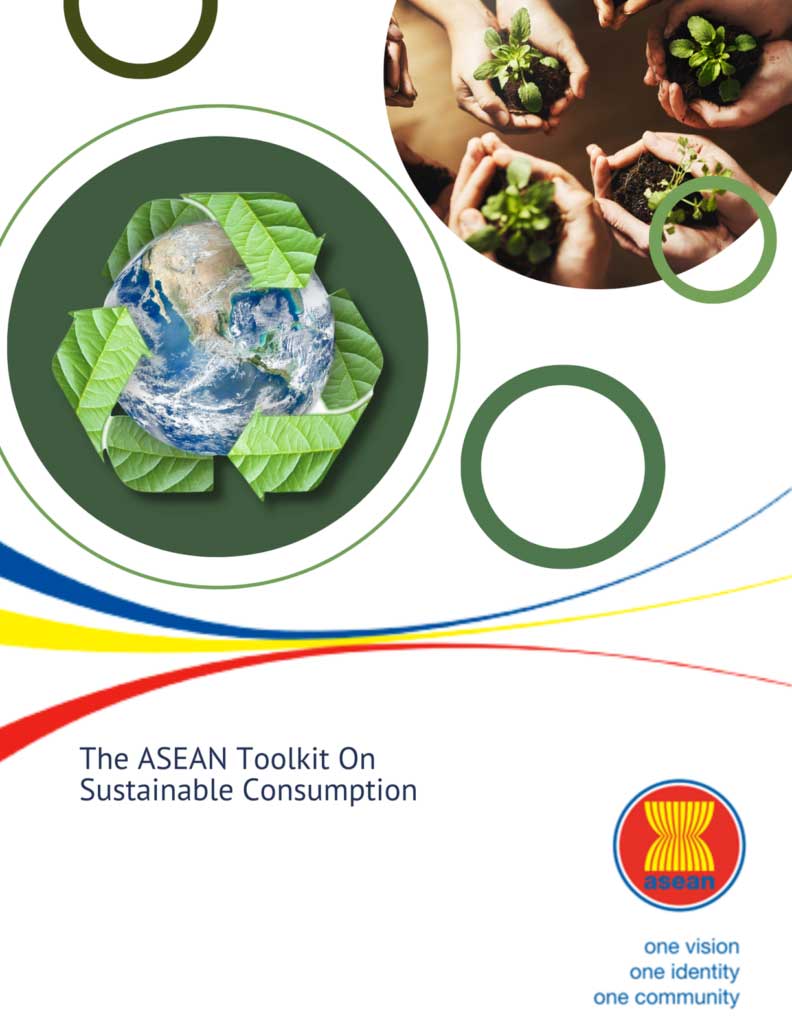
The ASEAN Committee on Consumer Protection (ACCP) has launched the ASEAN Toolkit on Sustainable Consumption which comprises of tools and teaching materials aiming to enhance the understanding of government officials, consumer associations, and businesses, on the concept and policy implications of sustainable consumption.
Promoting Sustainable Consumption is in-line with the ASEAN Economic Blueprint (AEC) 2025, which recognizes the need to build higher consumer confidence including through the promotion of sustainable consumption.
This strategic measure has been further elaborated under Goal 3 of the ASEAN Strategic Action Plan for Consumer Protection (ASAPCP) 2025 which aims at ensuring higher consumer confidence in the ASEAN Economic Community and cross-border commercial transaction.
The materials are divided into four modules with the following topics:
-Concepts and Principles and Principles of Sustainable Consumption;
-Best regional and international practices and approaches to policies that promote sustainable consumption;
-Tools and instruments used in influencing consumer behavior; and
-Use of appropriate instruments and tools in selected sectors
The materials are also supplemented with advocacy materials such as power point slides, infographics and an Audio-Visual Presentation.
Prior to the development of the Toolkit, the ACCP conducted a Capacity Building Workshops and Observational Site Visits to Tokyo and Kyoto, Japan in March 2019.
The Workshop discussed the gaps and challenges in promoting sustainable consumption and provided the opportunity for AMS to discuss the development of their respective national initiatives to promote sustainable consumption.
In addition, a Regional Forum took place on August 2019 in Manila, the Philippines to discuss ways forward to formulate and implement sustainable consumption policy in ASEAN.
In addition to ACCP members, the participants include international experts from countries with advance sustainable consumption initiatives such as Japan and South Africa.
It also includes NGOs, and academicians who are prominent advocates of the sustainable consumption movement.
The recommendations and deliberations at the Forum provided the foundation for the development of the Sustainable Consumption Toolkit.
The development of the Toolkit was led by the Department of Trade and Industry of the Philippines and funded by the Japan-ASEAN Integration Fund (JAIF) through the project ‘Promotion of Sustainable Consumption in ASEAN’.
Please visit the aseanconsumer.org website here to download the Toolkit and the set of advocacy materials.
For more information on ASEAN’s work on consumer protection, please visit the ACCP website: www.aseanconsumer.org.





















